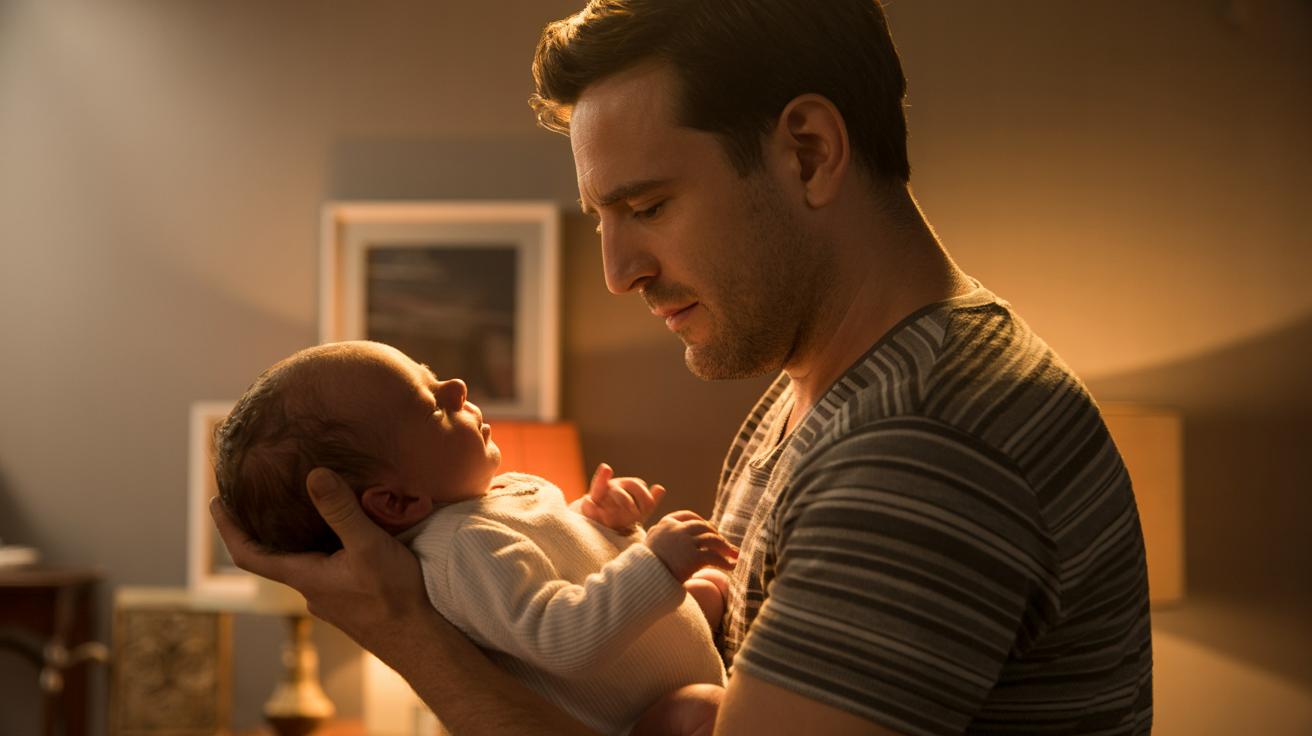What You Need to Know
- 👶 New fathers often feel invisible during the transition to parenthood, lacking the mental health support systems available to mothers.
- 📊 Research indicates that about one in ten fathers experiences significant mental health issues such as anxiety and depression during the perinatal period.
- 🔗 The mental well-being of fathers is crucial for the overall health of the family, impacting both partners and children’s development.
- 🚧 Social stigma and lack of targeted resources create barriers to support for fathers, perpetuating a culture of silence around their mental health struggles.
- 🔍 Advocacy efforts are pushing for systemic changes, such as integrating fathers into healthcare screenings and restructuring parental leave policies to promote greater involvement.
In recent years, the spotlight has increasingly turned towards the mental health challenges faced by new fathers. While society has made strides in recognizing and addressing postnatal depression in mothers, fathers often remain overlooked. This lack of support can have profound impacts not only on the fathers themselves but also on their families. As we delve deeper into the unique challenges new fathers face, it becomes clear that a systemic change is needed to ensure they receive the support they deserve. How can we bridge the gap and create a more inclusive support system for all new parents?
The Silent Struggle of New Fathers
Becoming a father is a transformative experience, yet many new dads find themselves feeling invisible during this critical time. While mothers are routinely screened for mental health issues, fathers often fall through the cracks. Research shows that approximately one in ten new fathers experience significant mental health challenges, including anxiety and depression. However, societal norms and expectations often pressure men to suppress these feelings, leading to a dangerous cycle of silence and isolation.
This issue is compounded by the traditional view of fathers as mere supporters for mothers, rather than individuals with their own emotional needs. Such perspectives can leave fathers feeling unprepared and overwhelmed as they adjust to their new roles. Without adequate support systems, fathers may resort to maladaptive coping mechanisms such as excessive work, alcohol use, or detachment, which further strain family dynamics.
Understanding the Impact on Families
The mental health of fathers has far-reaching consequences for their families. When fathers struggle, it can disrupt the entire family unit, affecting partners and children alike. Studies indicate that the well-being of fathers is directly linked to their ability to provide emotional support, which is crucial for the overall health of the family. Addressing the mental health needs of fathers is not just about helping them individually but also about promoting a healthier family environment.
Children are particularly sensitive to changes in their parents’ mental health. Fathers who are emotionally unavailable may find it challenging to bond with their children, potentially impacting the child’s development. Moreover, partners may feel additional stress as they try to compensate for the father’s struggles, leading to tension and conflict within the relationship. Recognizing the interconnectedness of family members is vital to understanding why fathers’ mental health should be prioritized.
Barriers to Support and Recognition
Despite the clear need for support, several barriers prevent fathers from receiving the help they need. Social stigma around male vulnerability often discourages fathers from seeking mental health services. Many men fear being perceived as weak if they express their struggles, which perpetuates a culture of silence. Additionally, existing healthcare systems often do not include fathers in routine mental health screenings, further marginalizing their experiences.
Another significant barrier is the lack of targeted resources for fathers. While there are numerous support groups and services for mothers, equivalent options for fathers are scarce. This disparity highlights the need for a systemic shift that normalizes and encourages paternal mental health support. Providing accessible resources and creating awareness about the importance of fathers’ mental health can help break down these barriers and foster a more inclusive environment.
Advocacy and the Path Forward
Advocacy for fathers’ mental health is gaining momentum, with researchers and healthcare professionals calling for systemic change. Some initiatives have begun to emerge, such as mobile apps designed to support fathers’ mental health through cognitive behavioral therapy and mood tracking. Programs like SMS4dads offer information and resources tailored specifically for fathers, helping to reduce feelings of isolation.
Experts emphasize the importance of integrating fathers into the healthcare system by including them in routine screenings and providing training for practitioners to support fathers. Restructuring parental leave policies to allow fathers to take on primary caregiving roles can also promote greater involvement and emotional bonding with their children. As society becomes more aware of the unique challenges faced by fathers, it is crucial to continue advocating for their mental health and creating supportive structures that recognize their vital role in the family.
As we shine a light on the mental health struggles of new fathers, it becomes imperative to ask: How can we reimagine our support systems to ensure that fathers are no longer invisible in the journey of parenthood? By addressing this question, we can pave the way for a future where all parents feel seen, supported, and empowered in their roles.
Did you like it?4.4/5 (22)







6 comments
Penelope7
Great article! It’s about time we start talking about this. Fathers play a vital role, and their mental health matters. 😊
harmony
Can we get more resources and support groups for dads, please?? This is an issue that’s been ignored for too long.
Matthew2
So true! My partner went through a rough patch after our baby was born. Wish there were more support systems in place!
ZoeXanadu
LOL, I guess dads need more than just a “World’s Best Dad” mug to feel supported! But seriously, this is eye-opening.
grayson
Why isn’t this talked about more? It’s high time society starts recognizing fathers’ mental health needs too. Let’s change the narrative!
Kylie4
Wow, I had no idea about the mental health struggles new dads face. Thanks for shedding light on this important issue! 🙌